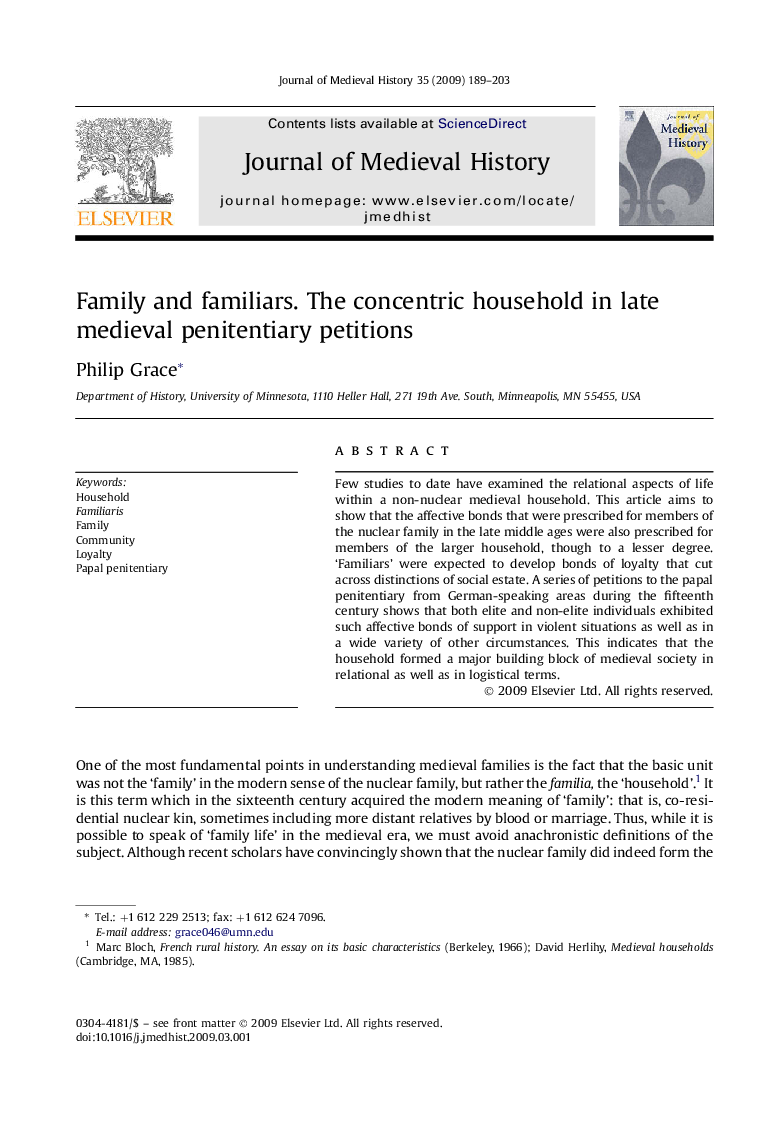| Article ID | Journal | Published Year | Pages | File Type |
|---|---|---|---|---|
| 1159793 | Journal of Medieval History | 2009 | 15 Pages |
Abstract
Few studies to date have examined the relational aspects of life within a non-nuclear medieval household. This article aims to show that the affective bonds that were prescribed for members of the nuclear family in the late middle ages were also prescribed for members of the larger household, though to a lesser degree. 'Familiars' were expected to develop bonds of loyalty that cut across distinctions of social estate. A series of petitions to the papal penitentiary from German-speaking areas during the fifteenth century shows that both elite and non-elite individuals exhibited such affective bonds of support in violent situations as well as in a wide variety of other circumstances. This indicates that the household formed a major building block of medieval society in relational as well as in logistical terms.
Related Topics
Social Sciences and Humanities
Arts and Humanities
History
Authors
Philip Grace,
